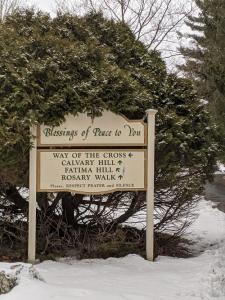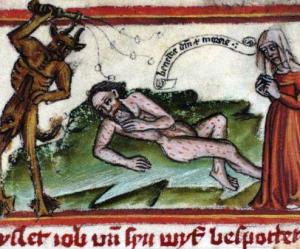“An overseer, then, must be above reproach, the husband of one wife, temperate, prudent, respectable, hospitable, able to teach.” 1 Timothy 3:2
“Deacons must be husbands of only one wife.” 1 Timothy 3:12
When I was 17 years old, I was sexually assaulted by a classmate. It was my first sexual experience, and it changed the course of my life. In addition to the psychological damage, I had to reckon with what my status as an assault victim meant in the context of a Christian campus ministry in college a few years later.
Having any sexual experience was definitely looked down upon in this ministry, and it was obvious that my assault had marked me in a way I didn’t care to be marked. This was a new, separate trauma I had to mourn and grapple with. Dating was really important in the group, and though I’d been sure that my sincere faith was enough to attract potential suitors, it wasn’t. Not being a virgin was simply not an option, at least for a woman. Most other struggles or sins were met with a belief in the healing power of Jesus, but this particular sin couldn’t be undone or erased, even by the blood of Jesus.
***
Several years ago, I was in a New Testament class discussing passages from 1 Timothy. The seminary I attended was part of a Mainline Protestant denomination, so the issue at hand wasn’t so much women’s ordination, but the idea of one wife. Our professor specialized in Greek and the class centered around close readings of his meticulous translations. His interpretation focused on the idea of the overseer or deacon having sexual relations with only one person during his lifetime. It basically moved past the idea of being married once to having abstained from any sexual relationships outside of marriage (and we talked briefly about re-marriage, but that was not the focus of the conversation).
It was a very popular idea with the students in the class. In another class with my cohort, a professor had asked if we, as pastors, would refuse to marry a couple if they lived together or admitted to having sex before marriage. Nearly every student said yes. Many were simply incredulous that the professor had even asked the question. He gently told them that of all the weddings he’d performed during his ten years in ministry, only three of the couples hadn’t lived together before the wedding. My feeling is that most of the students in the class did not follow through with their convictions and erred on a more pastoral way of responding to these kinds of situations. In general, though, my fellow seminarians definitely felt strongly about premarital sex and found our professor’s translation to be sound and helpful.
I was a married mother of two at the time, but the discussion took me back to a place in my life when I wasn’t.
***
This unexpected rush of memories of my assault and the aftermath motivated me to meet with my professor to talk about the material, something a little out of character for me. I’d heard that this particular professor was very “pastoral,” so I thought it would be a good conversation, despite my aversion to personal conversations outside a small group of friends (and even then, I’m usually pretty tight-lipped). But I was so curious to ask him about his view of the virginity status of a person who had been the victim of sexual assault, I felt I had to do it.
I’d long since done years of therapy and personal work to cope with what had happened to me and was fairly skeptical of Christian teachings regarding sexuality. In addition to my experiences, my mother had become pregnant with me when she was 17, while on birth control, the first time she had sex with my father, so I always struggled to see the hand of God in sexuality in the ways portrayed in Christian theology of all kinds.
I loved some of the noble ideas put forth in Scripture and other teachings, but I simply hadn’t seen them at work in my own life or those around me. Sex, pregnancy, and giving birth to children had all produced so much pain in my life that I couldn’t buy into standard Christian teaching. I wasn’t so much opposed to its validity as skeptical that life happened in the way Christians seemed to believe it should under God’s plan.
When I went in to talk with him, my professor was warm and welcoming. I told him I had a strange question, but that I wondered if the translation of the Scripture “having been with one partner” would apply to those who had been sexually assaulted, since technically the person had been part of a sexual act. I understood that it was a strange question and maybe even a preposterous one, but he was so meticulous in his translations and knowledge of the New Testament that his answer was strangely important to me.
Without hesitation, he said, “It doesn’t count.”
Taken aback, I said, “Excuse me?”
He said it again, “It doesn’t count.”
We went on to have a long and really good conversation about the implications of sexual assault on relationships and how difficult marriage is when one partner has been a victim of trauma and the ongoing work of forgiveness and healing that has to take place. It was a really, really good conversation.
But all I could think of was his opening statement, “It doesn’t count.”
I can’t imagine God having some kind of tally chart of our sexual experiences in which some of them count and some of them don’t. And even though I knew from our conversation that he knew the assault mattered deeply in my life, I couldn’t shake the idea of it not counting.
For most of my life, it counted more than almost anything else. It was all I thought about. I made life decisions based on what kind of person I had become because of what had happened to me. It counted, and I guess I couldn’t quite come to terms with the idea that God needed to excuse it for me to become a minister, even though I had technically been with more than one man.
To be fair, I was only lukewarm on his translation and on what I considered to be an obsession with purity in the Church, so this was mostly a mental exercise on my part, but I couldn’t let it go.
Did it work, theologically, like an annulment — where the act was considered invalid so it was like it didn’t exist?
Did I really want it to disappear from my “record,” and did I even want to have a “record?” Was that even a helpful way to think about morality, like some kind of permanent record? That by sweet-talking the principal or doing some community service, I could have certain things removed as if they never happened?
Meanwhile, I found Scripture and the Catechism and to be eerily silent.
The traditional Biblical stories about rape (Dinah in Genesis; Tamar in 2 Samuel) both give a message that the act is more an attack on purity and virginity than simply a violent act. Even accounting for major cultural changes since the Biblical period, the stories are unhelpful, even disturbing to assault victims looking for comfort. The Catechism entry on rape reads,
“Rape is the forcible violation of the sexual intimacy of another person. It does injury to justice and charity. Rape deeply wounds the respect, freedom, and physical and moral integrity to which every person has a right. It causes grave damage that can mark the victim for life. It is always an intrinsically evil act. Graver still is the rape of children committed by parents (incest) or those responsible for the education of the children entrusted to them.” CCC 2356
This is certainly true, but it is in the section titled “Offenses Against Chastity,” which gives great importance to chastity and less importance to the assault. There’s even an official patron saint for rape victims, St. Maria Goretti, but I don’t find her story particularly helpful, as it seems to imply that it’s better to die than to defile one’s chastity.
When you’ve been assaulted, a contrast between being assaulted and being chaste simply isn’t helpful.
At some point, I gave up obsessing about the Scripture. Ordination wasn’t in my plans, but I continued to obsess about the assault and the pastoral implications.
Just as people are speaking out about the need for pastoral care surrounding miscarriage and stillbirth, I’m hopeful that we can better address assault victims (not to mention those bullied or coerced into sexual acts). I suspect that we’re still uncomfortable with the idea, and that many remain suspicious of women’s claims of assault. Not to mention the historical reality of women being forced–legally–into sex with their husbands. All this certainly plays into the absence of pastoral care. I know it’s a difficult topic; I’ve spent around 20 years working it out in my own life. I still become physically ill when I read or hear an account of an assault.
In her essay, “Staying Alive,” Mary Oliver writes,
“There are stubborn stumps of shame, grief that remains unsolvable after all the years, a bag of stones that goes with one wherever one goes and however the hour may call for dancing and for light feet.”
My experience with assault (along with other stumps of my life) falls into this category and likely will all my days. I still haven’t figured out where it fits into my life theologically, and I’m not sure I will. It will likely remain unsolvable, and that’s okay, but I’m hopeful that through women sharing their stories of sexual assault and the trauma wholly unrelated to chastity it causes, the Church will start to have a voice, and will learn how to better minister to assault victims through concrete words and teachings.
It’s long overdue.
Shana Hutchings is originally from Anchorage, Alaska, but she now lives with her family in Des Moines, Iowa, a place she loves to explore by foot.
















